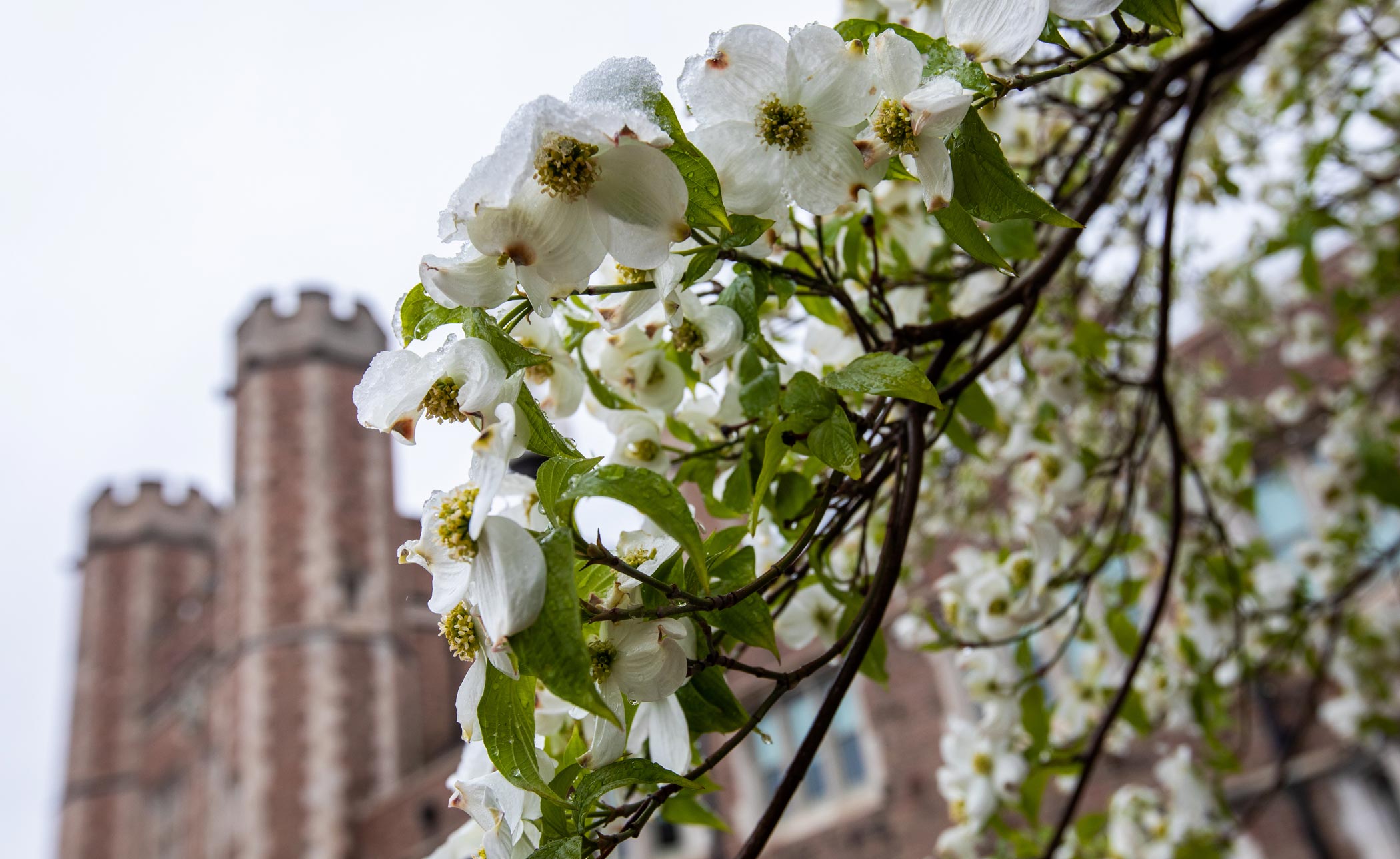
Kicking Off and Powering Up for Open Pedagogy
Every year for the past eleven years, Open Education Week has raised awareness and highlighted innovative open education successes worldwide. The U.S. Department of Education defines an open education ecosystem as one that involves making learning materials, data, and educational opportunities available without restrictions imposed by copyright laws, access barriers, or exclusive proprietary systems that lack interoperability and limit the free exchange of information.
At a hybrid panel discussion at Washington University Libraries, Open Educational Practices: Affordability Plus on March 8, Andrew Butler, associate professor of education, Michael Wysession, professor of Earth and planetary sciences, and Sally Wu, assistant director of educational technology, explored how open pedagogy is used to enhance group work and classroom assessment, digital literacy and curation skills, and can encourage students to contribute their voice and see their work being used out in the world. Traditional practices and closed (as opposed to open) resources do not lead to the same level of innovative teaching and research practices as our campus aspires to and our strategic plan calls for.
Growing Pains: Academic Integrity and Deeper Learning
Students’ emotional investment in the content they create and the fear of failure are barriers to fully embracing open educational practices and tools. But recognizing that failure is part of learning and growth, and that open practices are intended to evolve over time as collective knowledge improves is a promising prospect. An audience member asked about academic integrity with open educational resources, and while all the panelists agreed that there wasn’t a particular solution, this speaks toward the fact that working with open practices and resources makes it more difficult to implement instructional practices to prevent cheating or plagiarism. However, this question also calls for a change in perspective: the emphasis on performance and grades needs radical change. Open educational resources allow students deeper understanding by building things authentically, but how are we going to measure success? What should new benchmarks be?
Financial Considerations
The barriers instructors face with open educational practices are lingering misconceptions of quality. More importantly, funding models remain an issue. Regardless of the form open education takes, whether research articles or textbooks or otherwise, acceptance has been slow. There are a lot of small projects like editing Wikipedia entries, annotating materials, and open syllabi that are making students’ experiences in the classroom more collaborative and personalized. However, open educational resources intended to replace textbooks are not free to make and take time away from other research activities. Because traditional publishing models operate from financial payoffs, there needs to be a comfortable replacement, and incentives and rewards. In his talk, Wysession discussed several projects (like PHET interactive simulations and On the Cutting Edge Geoscience education) that used funding from agencies, professional development societies, and consortia. While this proves there are successful initiatives happening, there can be better sustainability through longstanding financial commitments to open education.
Resources Available
What we have now and are excited to develop are several library services and staff to assist with copyright and technical compatibility questions—not to mention, library services are built with the preservation of materials in mind. Also, the Center for Teaching and Learning provides consultations, workshops, and resources to build educational technologies for content creation, annotation, discussion, and collaboration with students.
The Right Timing
Our campus is calling for change. The White House Office of Science and Technology Policy memorandum, Ensuring Free Immediate & Equitable Access to Federally Funded Research (Nelson, 2022) is calling for free research material to be available more quickly and freely. In many ways, open educational practices and resources can answer these calls to create equal opportunities. It is a positive, momentous time for this awareness and activity.
At the start of this event, we polled the audience about what brought them. Responses included learning ways of getting students creatively engaged with materials they’re using in courses and sharing and learning about needs and opportunities in this area through partnerships. Toward the end of the event, another poll indicated that several participants are already using materials in shared, reusable, and open ways. Many of us are eager to share our expertise, resources, and experiences.
What are you and your students doing in this area? Get in touch with us about facilitating or joining a future roundtable or workshop event happening in the fall. In addition to these events within this series, stay tuned for bigger partnerships and news moving forward. Please email us at wulib_copyrighthelp@wumail.wustl.edu to express interest and stay in touch.
More Resources
- Scholarly Communications & Digital Publishing Services
- Center for Teaching and Learning Creative Assignment Development
Treasa Bane is the copyright and scholarly communication librarian at Washington University.
